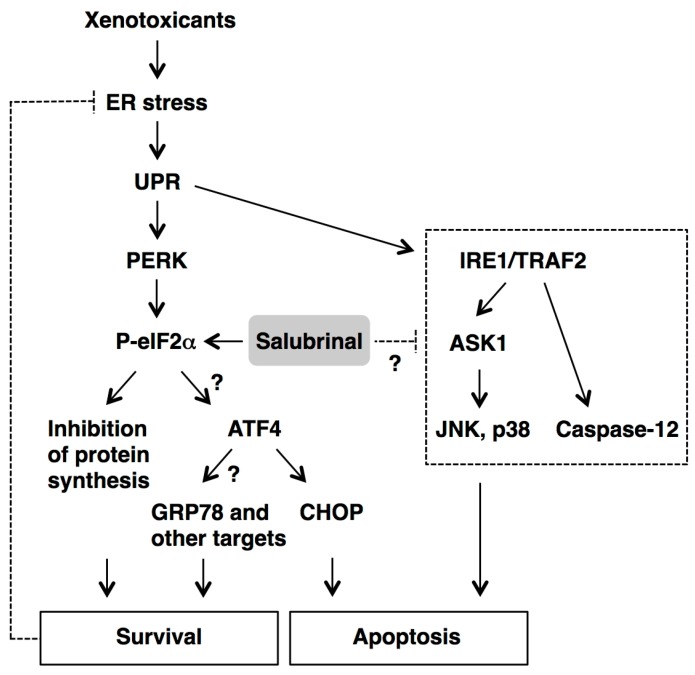Figure 2.
Proposed effects of salubrinal on the xenotoxicant-activated ER stress signaling pathways. Following exposure to xenotoxicants, ER stress activates the double-stranded RNA-activated protein kinase-like ER kinase (PERK)/eukaryotic translation initiation factor 2 alpha (eIF2α) pathway and the inositol-requiring enzyme 1 (IRE1)/tumor necrosis factor receptor-associated factor 2 (TRAF2) pathway, which are the two branches of the unfolded protein response (UPR). The enhancement or prolongation of eIF2α phosphorylation by salubrinal reduces global protein synthesis and the overall amount of ER stress, resulting in cell survival. In contrast to most proteins, the expression of activating transcription factor 4 (ATF4) is up-regulated through alternative translation and thus not impacted by the reduction in protein synthesis. The ATF4 protein balances between the signals leading to survival (by 78-kDa glucose-regulated protein (GRP78) and other UPR targets) and to apoptosis (by CCAAT/enhancer-binding protein homologous protein (CHOP)). Salubrinal might act on the IRE1/TRAF2 pathway that leads to the activation of apoptosis signal-regulating kinase 1 (ASK1)/c-Jun NH2-terminal kinase (JNK)-mediated, ASK1/p38-mediated, and caspase-12-dependent apoptotic pathways.

